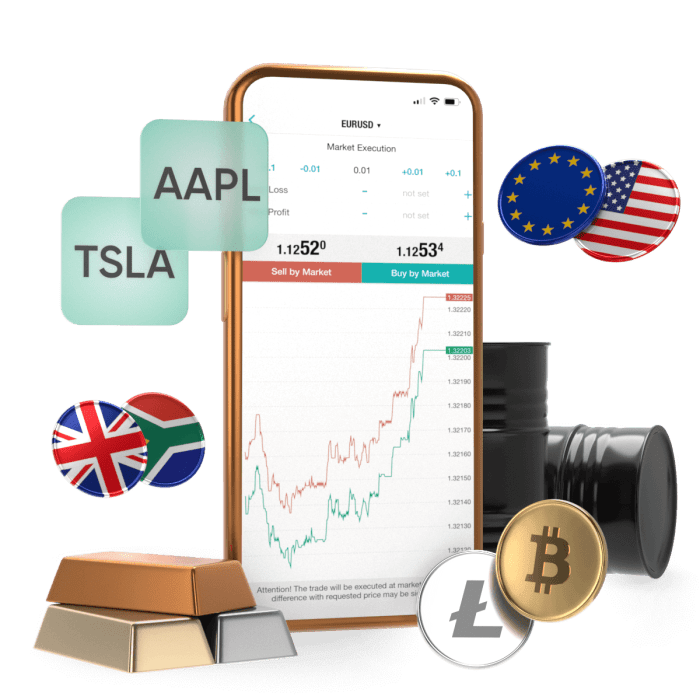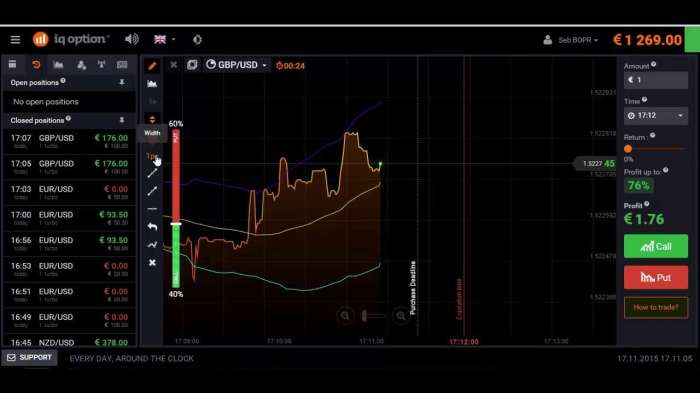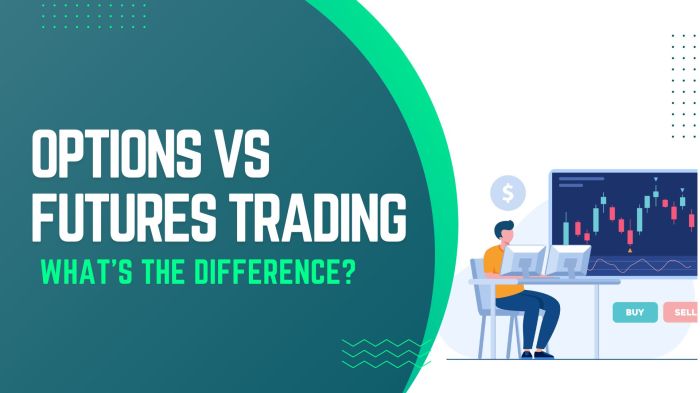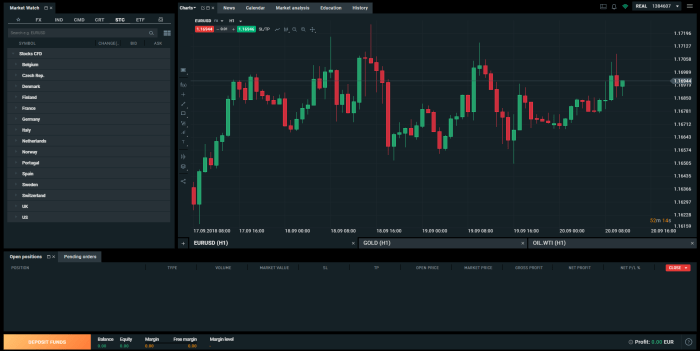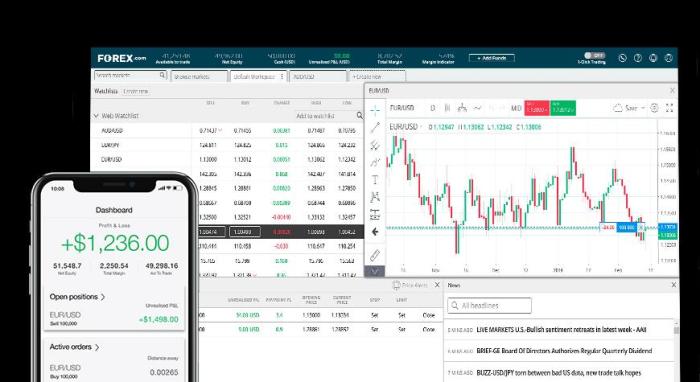
Forex trading group: Dive into the exciting, yet sometimes treacherous, world of collaborative forex trading. This isn’t your grandpa’s investment club; it’s a dynamic ecosystem of traders sharing strategies, insights, and (hopefully) profits. But navigating this landscape requires caution. This guide unpacks everything you need to know about finding the right group, participating effectively, and ultimately, making smarter trading decisions.
From understanding the various types of forex trading groups and their structures to mastering the art of constructive communication and risk management, we’ll cover it all. We’ll also delve into the crucial role of mentorship, the impact of technology, and the legal considerations you absolutely can’t ignore. Get ready to level up your forex game.
Defining Forex Trading Groups
Forex trading groups represent a diverse landscape of online and offline communities uniting individuals with a shared interest in foreign exchange markets. These groups range from casual gatherings of novice traders to highly structured organizations led by experienced professionals. Understanding their nuances is crucial for anyone considering joining.
The benefits of participating in a forex trading group are multifaceted. Members often gain access to collective knowledge, diverse trading strategies, and emotional support during periods of market volatility. The shared experience can foster a sense of community and accountability, encouraging consistent learning and disciplined trading practices. However, drawbacks exist. Information shared within a group may not always be accurate or reliable, leading to misguided trading decisions. The potential for misinformation, “groupthink,” and even the spread of scams necessitates critical evaluation of any information received.
Types of Forex Trading Groups
Forex trading groups exhibit considerable variety in their structure and purpose. Some are loosely organized online forums, where traders freely exchange ideas and experiences. Others are subscription-based services offering structured educational materials, mentorship programs, and exclusive trading signals. Still others are tightly knit communities built around specific trading strategies or methodologies. The choice of group depends heavily on an individual’s trading experience, learning style, and risk tolerance.
Benefits and Drawbacks of Joining a Forex Trading Group
The advantages of joining a forex trading group include access to a network of experienced traders, shared knowledge, and potential for collaborative learning. The sense of community can help mitigate the isolation often felt by solo traders. Conversely, drawbacks include the risk of exposure to inaccurate or misleading information, the potential for undue influence from more experienced (but not necessarily more skilled) members, and the possibility of encountering scams or fraudulent schemes. Careful vetting of any group before joining is essential.
Characteristics of a Successful Forex Trading Group
A successful forex trading group is characterized by a strong emphasis on education and risk management. Members should be encouraged to develop their own trading plans and strategies, rather than blindly following signals or advice from others. Open communication, mutual respect, and a focus on continuous learning are also key ingredients. Transparency regarding the group’s leadership and its financial interests is also crucial to build trust and prevent exploitation. A successful group fosters a collaborative environment where members support each other’s growth while maintaining individual accountability.
Comparison of Forex Trading Group Structures
Different forex trading groups employ diverse structures. Some operate as open forums with minimal moderation, allowing for free-flowing discussions but potentially leading to a high level of noise and misinformation. Others utilize a hierarchical structure with designated leaders or mentors who provide guidance and direction. Still others are structured around specific trading strategies, providing a more focused learning experience. The optimal structure depends on the goals and needs of the members. A well-structured group, regardless of its specific format, will prioritize education, risk management, and ethical trading practices.
Finding and Evaluating Forex Trading Groups
Joining a forex trading group can be a double-edged sword. While it offers potential benefits like shared knowledge and community support, it also carries significant risks if you’re not careful in your selection. Choosing wisely is crucial to avoid scams and maximize your learning experience. This section Artikels key factors to consider when evaluating forex trading groups.
Key Factors to Consider When Selecting a Forex Trading Group
Selecting the right forex trading group requires careful consideration of several critical aspects. A hasty decision could lead to wasted time, money, and potentially, significant financial losses. Therefore, thorough research and evaluation are essential. The right group should enhance your trading journey, not hinder it.
Checklist for Evaluating the Credibility of a Forex Trading Group
Before committing to any forex trading group, a thorough evaluation is vital. This checklist helps you assess the group’s credibility and legitimacy, minimizing the risk of falling prey to scams or misleading information. Remember, due diligence is your best defense.
- Transparency: Does the group openly share its trading strategies and methodology? Avoid groups that are secretive or rely on vague promises of guaranteed profits.
- Track Record: Does the group provide verifiable evidence of past performance? Be wary of groups that only showcase wins and ignore losses.
- Member Reviews and Testimonials: Look for independent reviews and testimonials from past and current members. Check multiple sources to get a balanced perspective.
- Educational Resources: Does the group offer valuable educational resources, such as webinars, tutorials, or mentoring programs? A strong educational component is a positive sign.
- Fees and Charges: Understand the fees involved before joining. Avoid groups that demand exorbitant fees or hidden charges.
- Legal Compliance: Ensure the group operates within legal and regulatory frameworks. Check for any red flags indicating illegal activities.
Examples of Red Flags to Watch Out for in Forex Trading Groups
Several red flags should immediately raise concerns about a forex trading group’s legitimacy. Recognizing these warning signs can protect you from potential scams and financial losses. Trust your instincts – if something seems too good to be true, it probably is.
- Guaranteed Returns: No legitimate forex trading group can guarantee profits. Forex trading inherently involves risk.
- High-Pressure Sales Tactics: Avoid groups that use aggressive or high-pressure sales tactics to persuade you to join.
- Lack of Transparency: If the group is secretive about its strategies or refuses to disclose its track record, it’s a major red flag.
- Unrealistic Promises: Be wary of groups that promise quick riches or overnight success in forex trading.
- Negative Reviews and Complaints: A significant number of negative reviews or complaints should raise serious concerns.
- Requests for Personal Information: Be cautious about groups that request excessive personal information, especially financial details.
Comparison of Forex Trading Group Platforms
Choosing the right platform can significantly impact your trading experience. This table compares features of different hypothetical forex trading group platforms to illustrate the key factors to consider. Remember, this is for illustrative purposes only and does not endorse any specific platform.
| Platform | Educational Resources | Community Support | Cost |
|---|---|---|---|
| ForexProGroup | Webinars, tutorials, mentoring | Active forum, regular Q&A sessions | $99/month |
| TradeWiseCollective | Beginner-friendly guides, limited webinars | Less active forum, limited support | $49/month |
| GlobalFXNetwork | Extensive library of resources, expert analysis | Highly active community, dedicated support team | $199/month |
| EliteTradersClub | Signal services, limited educational materials | Moderated forum, limited interaction | $149/month |
Participation and Interaction within Forex Trading Groups
Joining a forex trading group can be a double-edged sword. While offering access to collective knowledge and diverse perspectives, it also presents challenges that require careful navigation. Understanding how to effectively participate and interact is crucial to maximizing the benefits and minimizing the risks. This section explores effective strategies, the importance of respectful communication, the dangers of blindly following advice, and how to contribute valuable insights.
Effective Strategies for Participating in Forex Trading Group Discussions
Participating actively but thoughtfully is key. Don’t just lurk; engage in discussions, ask clarifying questions, and share your own experiences (while respecting confidentiality). Remember, a successful forex trading group thrives on a balance of sharing and learning. Overly aggressive self-promotion or constant negativity will likely be met with resistance.
Respectful and Constructive Communication
A forex trading group’s success hinges on mutual respect. Constructive criticism, when offered politely and with a focus on improvement, is invaluable. Conversely, personal attacks, condescending remarks, or spreading misinformation undermine the group’s purpose. Maintain a professional demeanor, even when disagreeing with others. Remember, everyone is at a different stage of their trading journey.
Risks of Blindly Following Advice
Blindly following any advice, especially in the volatile world of forex trading, is extremely risky. Each trader has a unique risk tolerance, trading style, and financial situation. What works for one person might be disastrous for another. Treat all advice as suggestions, not gospel. Always conduct your own thorough research and analysis before making any trading decisions. Consider the source of the advice – is it from a consistently profitable trader, or someone with limited experience?
Contributing Valuable Insights to a Forex Trading Group
Sharing valuable insights is a two-way street. It strengthens the community and improves your own understanding. Before offering advice, ensure it’s based on sound analysis and your own trading experience. Provide concrete examples, charts, or data to support your points. Sharing well-researched market analyses, unique trading strategies (without revealing proprietary information), or insightful observations on current market trends are all valuable contributions. For example, discussing a recent news event and its potential impact on a specific currency pair, supported by relevant charts and technical indicators, would be a significant contribution. Avoid making unsubstantiated claims or promoting get-rich-quick schemes.
The Role of Mentorship and Learning in Forex Trading Groups

Forex trading, while potentially lucrative, is notoriously risky. Navigating its complexities requires more than just technical knowledge; it demands experience, discipline, and a supportive community. This is where the mentorship aspect of a forex trading group becomes invaluable, providing a structured path to learning and significantly increasing the chances of success. A well-structured mentorship program can transform a group from a simple information-sharing hub into a powerful engine for growth and consistent profitability.
Mentorship programs within forex trading groups offer numerous benefits to members. Access to experienced traders provides invaluable guidance, accelerating the learning curve and reducing the likelihood of costly mistakes. Beyond direct instruction, mentorship fosters a sense of community and accountability, crucial elements in maintaining consistent trading discipline. This support system can be the difference between sporadic success and sustained profitability.
Benefits of Mentorship Programs in Forex Trading Groups
A strong mentorship program within a forex trading group offers several key advantages. Mentors provide personalized guidance tailored to individual learning styles and trading strategies. They can offer real-time feedback on trades, helping members refine their techniques and avoid common pitfalls. This personalized approach is far more effective than simply relying on generic online resources. Furthermore, the mentorship relationship often extends beyond technical analysis, encompassing risk management, emotional control, and the development of a sustainable trading psychology. This holistic approach is essential for long-term success in the volatile world of forex.
Effective Learning Methods in Successful Forex Trading Groups
Successful forex trading groups employ a variety of effective learning methods. These often include regular webinars and workshops covering advanced trading strategies, risk management techniques, and market analysis. Many groups also utilize interactive trading simulations, allowing members to practice their skills in a risk-free environment before committing real capital. Live trading room sessions, where mentors guide members through real-time market analysis and trade execution, provide invaluable practical experience. Finally, many groups maintain a dedicated forum or chat channel for ongoing discussion, questions, and peer-to-peer learning. This constant interaction ensures continuous learning and a collaborative environment.
Hypothetical Mentorship Program Structure and Goals
This hypothetical mentorship program for a forex trading group would be structured in three phases. Phase 1 (Foundational): Focuses on fundamental forex concepts, technical analysis, and risk management principles. This phase utilizes online modules, webinars, and one-on-one sessions with mentors to build a strong foundation. Phase 2 (Application): Members apply their knowledge through simulated trading, receiving personalized feedback from their mentors. This phase emphasizes practical application and the refinement of trading strategies. Phase 3 (Advanced): Members engage in live trading with ongoing mentorship and support. Mentors provide guidance and adjustments based on real-time market conditions and individual performance. The overall goal is to empower members to become consistently profitable, independent traders.
Evaluating the Quality of Mentorship within a Forex Trading Group
Evaluating the quality of mentorship involves several key considerations. Firstly, examine the mentors’ track record. Look for verifiable proof of consistent profitability and experience in the forex market. Secondly, assess the mentorship program’s structure and curriculum. A well-structured program will provide a clear path for learning, with measurable goals and regular progress reviews. Thirdly, consider the level of support and interaction offered. A responsive and supportive mentorship team is crucial for addressing individual needs and challenges. Finally, seek testimonials and reviews from past participants to gain insights into their experiences and the overall effectiveness of the program.
Risk Management and Responsible Trading within Forex Trading Groups
Forex trading, while potentially lucrative, is inherently risky. The volatility of the market demands a robust risk management strategy, and this need is amplified within a trading group setting where shared experiences and potential biases can influence individual decisions. A well-structured forex trading group, however, can be a powerful tool for fostering responsible trading habits and mitigating individual risk.
The importance of risk management strategies within a forex trading group cannot be overstated. A group environment, while offering support and learning opportunities, can also create a sense of herd mentality, leading to impulsive decisions and increased risk-taking. A structured approach to risk management helps individuals make informed choices, protecting their capital and promoting long-term success. Furthermore, open discussions about risk within the group can normalize responsible trading practices and discourage reckless behavior.
Risk Management Strategies in Forex Trading Groups
Effective risk management within a forex trading group typically involves a multi-faceted approach. This includes setting stop-loss orders to limit potential losses on individual trades, using position sizing techniques to control the overall exposure to risk, and diversifying trading strategies to avoid over-reliance on a single approach. Groups often implement educational initiatives focused on these strategies, using real-world examples and case studies to illustrate the consequences of poor risk management. Regular reviews of individual trading plans, conducted either individually or within smaller group sessions, help to reinforce these principles.
The Role of Group Support in Developing Responsible Trading Habits
A supportive forex trading group provides a crucial environment for developing responsible trading habits. Members can learn from each other’s successes and failures, sharing experiences and insights that reinforce the importance of disciplined trading. Open discussions about emotional responses to market fluctuations – fear, greed, and overconfidence – help members to identify and manage their psychological biases. The collective support system can encourage members to stick to their risk management plans, even during periods of market volatility or personal setbacks. This peer-to-peer accountability is a significant advantage of a well-structured trading group.
Comparing Different Risk Management Approaches
Different forex trading groups may employ varied risk management approaches. Some groups might favor a more conservative approach, emphasizing strict adherence to stop-loss orders and limiting leverage. Others may adopt a more aggressive strategy, utilizing higher leverage but with a strong focus on position sizing and diversification. Some groups may incorporate advanced risk management techniques like hedging or options trading. The choice of approach depends on the group’s overall trading philosophy and the experience level of its members. It’s crucial to carefully evaluate a group’s risk management philosophy before joining, ensuring alignment with your own risk tolerance and trading style.
Creating a Personal Risk Management Plan
Building a personal risk management plan, informed by group discussions and learnings, involves several key steps. First, determine your risk tolerance: how much capital are you willing to lose on any given trade or over a specific period? This is a crucial starting point. Next, define your trading style: are you a scalper, day trader, or swing trader? Different trading styles require different risk management approaches. Then, establish clear position sizing rules: what percentage of your account will you risk on each trade? Finally, set stop-loss and take-profit levels for each trade, ensuring that your stop-loss orders are placed at levels that protect your capital from significant losses. Regularly review and adjust your plan based on your trading performance and market conditions. The group setting can provide valuable feedback and support in refining this plan over time. For instance, if consistently exceeding a pre-determined risk percentage, the group can help identify areas for improvement in the plan, emphasizing the importance of discipline and adherence to pre-defined parameters.
Legal and Regulatory Considerations for Forex Trading Groups
Forex trading, while potentially lucrative, operates within a complex legal and regulatory framework. Forex trading groups, bringing together individuals for shared learning and trading, must navigate this landscape carefully to avoid legal pitfalls and ensure ethical operations. Ignoring these considerations can lead to significant financial and legal repercussions for both organizers and participants.
The legal and regulatory environment surrounding forex trading groups varies significantly depending on the group’s location and structure. Key considerations include the legal status of the group itself (is it a partnership, club, or something else?), the nature of the advice or signals provided (is it considered financial advice requiring licensing?), and the methods of financial transactions used. Groups offering investment advice or managing funds on behalf of members must adhere to stringent regulations designed to protect investors from fraud and mismanagement. Even informal groups sharing trading strategies can face legal challenges if those strategies are misrepresented or lead to losses.
Potential Legal Risks for Forex Trading Groups
Operating or participating in a forex trading group carries inherent legal risks. These risks stem from a variety of sources, including the potential for unauthorized financial activity, the dissemination of misleading or inaccurate information, and the breach of securities laws. For example, a group promoting a “guaranteed” trading system or promising unrealistic returns could face accusations of fraud. Similarly, a group failing to adequately disclose the risks associated with forex trading could face legal action from members who experience significant losses. The use of unlicensed or unregulated brokers can also expose the group and its members to substantial financial and legal liabilities.
Ensuring Compliance with Regulations
Forex trading groups can minimize their legal risk through proactive compliance efforts. This includes clearly defining the group’s purpose and structure, ensuring transparency in all financial transactions, and adhering to all applicable securities and anti-money laundering (AML) regulations. Groups should maintain meticulous records of all communications, transactions, and member activities. Seeking legal counsel to ensure compliance with local and international regulations is crucial, particularly for groups operating across multiple jurisdictions. Utilizing licensed and regulated brokers for all trading activities is another critical step in mitigating legal risk. For example, a group could establish a formal agreement outlining the responsibilities of members and the group’s leadership, ensuring all members are aware of the inherent risks involved in forex trading.
Best Practices for Maintaining Legal and Ethical Standards
Maintaining high legal and ethical standards is paramount for the long-term success and reputation of any forex trading group. This requires a commitment to transparency, accountability, and responsible trading practices.
- Establish a clear legal structure: Determine the group’s legal status and ensure it complies with all relevant regulations.
- Disclose all risks: Clearly communicate the inherent risks associated with forex trading to all members.
- Maintain transparent financial practices: Keep accurate records of all transactions and ensure all funds are handled responsibly.
- Utilize regulated brokers: Only use brokers that are licensed and regulated by reputable financial authorities.
- Avoid making guarantees or promises of unrealistic returns: Refrain from making any statements that could be construed as misleading or fraudulent.
- Comply with AML regulations: Implement robust procedures to prevent money laundering and other financial crimes.
- Seek legal counsel: Consult with a legal professional to ensure compliance with all relevant laws and regulations.
The Impact of Technology on Forex Trading Groups
The digital age has revolutionized forex trading, and its influence on forex trading groups is undeniable. Technology has become the backbone of communication, learning, and collaboration, transforming how these groups operate and achieve their goals. From streamlining communication to enhancing educational resources, technology’s impact is multifaceted and crucial to the success of modern forex trading communities.
Technology facilitates seamless communication and collaboration within forex trading groups in numerous ways. Instant messaging platforms, dedicated group chats, and video conferencing tools allow members to connect and share information in real-time, regardless of geographical location. This fosters a sense of community and allows for rapid responses to market changes. Furthermore, these technologies enable the sharing of charts, trading strategies, and analytical data, significantly improving the efficiency of collaborative trading and learning.
Enhanced Learning Experiences Through Technology, Forex trading group
Technology significantly enhances the learning experience within forex trading groups. Online learning platforms offer structured courses, webinars, and tutorials on various aspects of forex trading. These platforms often include interactive elements like quizzes and assignments, fostering active participation and knowledge retention. Members can access a vast library of educational resources, including articles, ebooks, and video recordings of trading sessions, at their own pace and convenience. This flexibility caters to diverse learning styles and schedules, maximizing the effectiveness of the group’s educational efforts. The use of automated trading tools and backtesting software also allows members to practice and refine their strategies in a risk-free environment before applying them to live trading.
Social Media and Online Platforms for Forex Trading Group Interaction
Social media platforms and online forums play a pivotal role in facilitating interaction within forex trading groups. These platforms provide a space for members to engage in discussions, share their trading experiences, and seek advice from experienced traders. Groups can leverage these platforms to organize events, share market updates, and build a strong sense of community. However, it’s crucial to acknowledge the potential downsides, such as the spread of misinformation and the risk of encountering unqualified or manipulative individuals. Careful moderation and a focus on verified information are essential for maintaining the integrity and safety of the group.
Technological Tools Used by Successful Forex Trading Groups
Successful forex trading groups often leverage a combination of technologies to maximize their effectiveness. The selection of tools depends on the group’s specific needs and goals, but some common examples include:
- Dedicated Group Chat Platforms: Platforms like Discord or Slack provide organized channels for communication, allowing members to discuss different topics and share information efficiently.
- Video Conferencing Tools: Zoom or Google Meet facilitate live webinars, training sessions, and group discussions, fostering a more interactive learning experience.
- TradingView: This platform allows members to share charts, analyze market data collaboratively, and track trading performance.
- Automated Trading Platforms (MT4/MT5): These platforms enable automated trading strategies and backtesting, crucial for refining trading approaches and minimizing risks.
- Learning Management Systems (LMS): Platforms like Moodle or Coursera can host structured courses, quizzes, and assignments, providing a formal learning environment.
Final Conclusion
So, are forex trading groups the golden ticket to forex riches? The answer, as with most things in finance, is nuanced. While they offer invaluable learning opportunities and a supportive community, they also present potential risks. Success hinges on careful selection, active participation, and a healthy dose of skepticism. By understanding the benefits and drawbacks, and by applying the knowledge gained here, you can significantly improve your chances of navigating this complex world and achieving your trading goals. Remember: do your research, choose wisely, and always prioritize responsible trading.
You also can understand valuable knowledge by exploring forex trading mentors.
Check what professionals state about forex trading how to read charts and its benefits for the industry.
